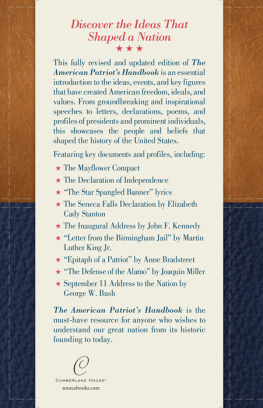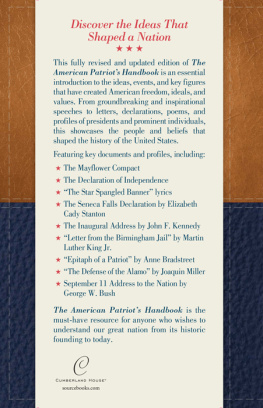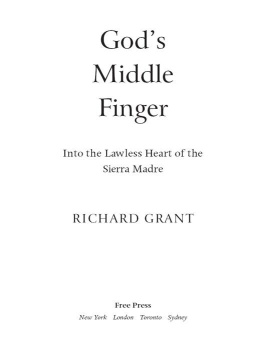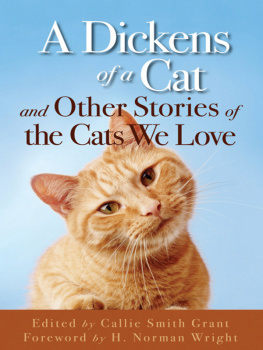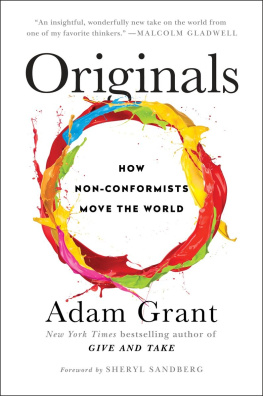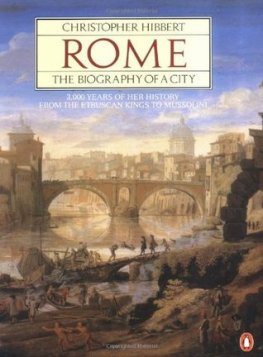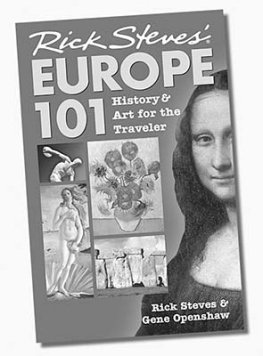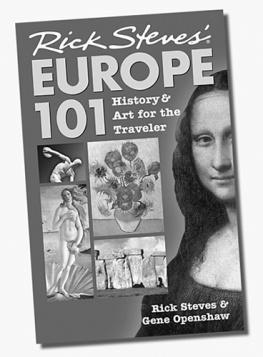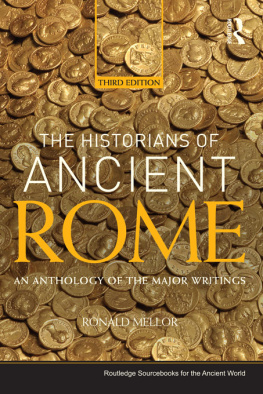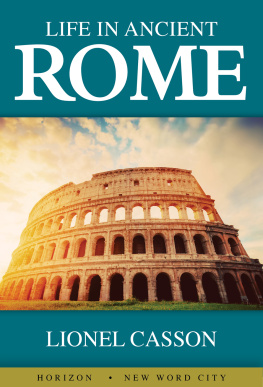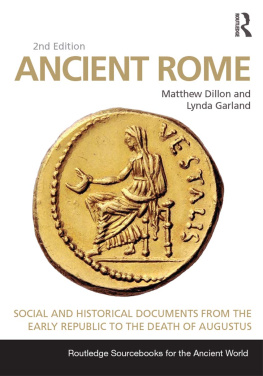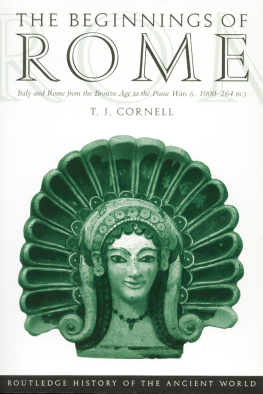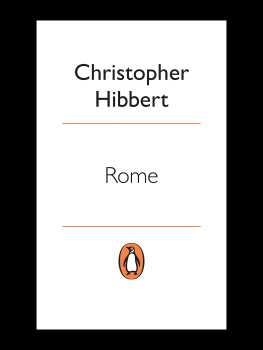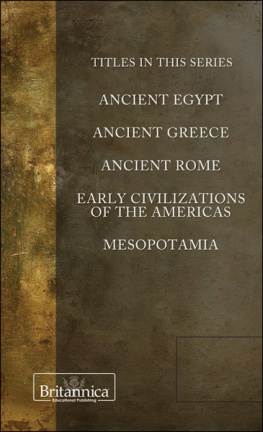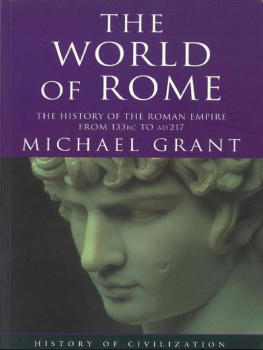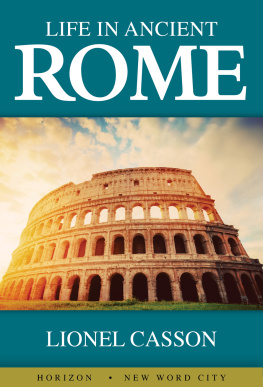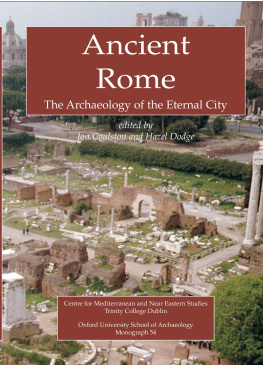Grant - The Climax of Rome
Here you can read online Grant - The Climax of Rome full text of the book (entire story) in english for free. Download pdf and epub, get meaning, cover and reviews about this ebook. year: 2015, publisher: Hachette UK, genre: Art. Description of the work, (preface) as well as reviews are available. Best literature library LitArk.com created for fans of good reading and offers a wide selection of genres:
Romance novel
Science fiction
Adventure
Detective
Science
History
Home and family
Prose
Art
Politics
Computer
Non-fiction
Religion
Business
Children
Humor
Choose a favorite category and find really read worthwhile books. Enjoy immersion in the world of imagination, feel the emotions of the characters or learn something new for yourself, make an fascinating discovery.

The Climax of Rome: summary, description and annotation
We offer to read an annotation, description, summary or preface (depends on what the author of the book "The Climax of Rome" wrote himself). If you haven't found the necessary information about the book — write in the comments, we will try to find it.
The definitive study of Rome by one of the 20th centurys finest ancient historians. A richly detailed portrait of Rome at the height of its glory.
**
The Climax of Rome — read online for free the complete book (whole text) full work
Below is the text of the book, divided by pages. System saving the place of the last page read, allows you to conveniently read the book "The Climax of Rome" online for free, without having to search again every time where you left off. Put a bookmark, and you can go to the page where you finished reading at any time.
Font size:
Interval:
Bookmark:
MICHAEL GRANT

To Steven Runciman
This book gives an account of Rome and the lands under its rule between the accession of Marcus Aurelius and the death of Constantine the Great (AD 161-337). My aim has been to combine in a single volume a discussion of the most important political and economic events and the outstanding cultural and religious developments, with some attention to their backgrounds and aftermaths.
Not only was the empire converted to Christianity during this epoch, but it was also extraordinarily rich in other happenings. Many of them, however, have been neglected by all but specialists, because the original sources are often obscure and difficult to interpret, and most of all because the period seems to belong neither to antiquity nor to the Middle Ages. That is indeed one of its peculiar fascinations. Spanning the gulf between two worlds, it is a time of rapid transition comprising changes which could scarcely have been more far-reaching and decisive. But the idea that this is therefore a mere no-mans-land, a trough between the ages, would be quite mistaken. The attribution of that somewhat shadowy, interim character to the period was encouraged by Edward Gibbon, who believed that the happiest age of mankind ended with the death of Marcus Aurelius, and that afterwards came decline and fall.
Such a view, developed by Gibbon with incomparable brilliance, had classical authority. Ever since the earliest empire, Roman writers had been airing the view that Rome was getting old. When the historian Dio Cassius came to the end of Marcus reign, he paused in order to observe that his work now descends from a kingdom of gold to one of iron and rust, as affairs did for the Romans of that day. And in the next century St Cyprian, though one of the Christians whom Gibbon did not like, agreed with him in feeling upon all sides the chilly touch of impending death.
This is too incomplete and negative a view of the period. Politically and economically, it is true, gloom was justified. For insecurity and anxiety were more acute and desperate than they had ever been, and there was a rapid growth of government by autocratic force. Yet political and economic distress does not always prevent cultural and spiritual triumphs, and sometimes breeds them. In the later Roman empire, great positive, personal achievements of the mind and spirit accompanied and often resulted from those adversities and governmental oppressions. Indeed, these achievements were so outstanding, in a variety of fields, that the epoch to which they belong is one of the most important in the history of the world; and because it shows what human beings can do in harrowing conditions it is also one of the most heartening.
And so I have called this book The Climax of Rome. After surveying the field, I shall point in the epilogue to the reasons which exist for claiming that this title, however unexpected in relation to the period, is justifiable, or inevitable (). Nevertheless a further element of paradox remains in the word Rome. The men who made the age were Romans in the sense that they lived in the Roman empire. But the greatest of them did not come from Rome itself, or even from Italy. In particular, my book has a lot to say about the east, since this eastern bias, though perhaps unusual in western students of history, seems to me to reflect the importance of that area in the third-and fourth-century world. Eternal Rome was more than a geographical term; it had become a concept or series of concepts, the emotive symbol of a great society comprising many races and cultures. Such, then, is the Rome of which this age is the climax.
I acknowledge with gratitude permission to quote from copyright works:
A. H. Armstrong and Messrs Allen and Unwin for Plotinus, the executors of M. Hadas and Bobbs-Merrill Co for Three Greek Romances, Everymans Library for Heliodorus: Ethiopian Story, E. C. Echols and University of California Press for Herodian of Antiochs History of the Roman Empire, E. R. Dodds and the Cambridge University Press for Pagan and Christian in an Age of Anxiety, the Cambridge University Press for Cambridge Ancient History, A. H. M. Jones and Messrs Longmans for The Decline of the Ancient World, Messrs William Heinemann for translations from Achilles Tatius, Galen (On the Natural Faculties) and Tertullian (Apology) in the Loeb Classical Library, M. Staniforth and Penguin Books for Marcus Aurelius Meditations, P. Turner and Penguin Books for Lucians Satirical Sketches, G. R. S. Mead and Penguin Books for Hymn of Soul in F. C. Happolds Mysticism, P. Jay and Oxford Magazine for Pervigilium Veneris, E. OBrien and Mentor Books for The Essential Plotinus.
I owe thanks to Professor A. H. M. Jones and Professor F. W. Walbank for allowing me to read works of theirs before publication. But neither they nor anyone else, apart from myself, can be held responsible for the numerous inadequacies which my attempt to cover so wide a field is certain to have produced. I want to express appreciation to the library staff at the Queens University Belfast, to Mr Anthony Burton, Mr Julian Shuckburgh and Mrs Patricia Vanags of Messrs George Weidenfeld and Nicolson Ltd, and to Mrs W. Bernstein who collected the illustrations. Acknowledgements are also due to the University of Saskatchewan, which has published a lecture of mine on this general theme, and to Horizon (New York), Mankind (Los Angeles), and History Today (London), for which I wrote preliminary studies relating to the recovery of the empire, the triumph of Christianity, and the Gnostics and Manichaeans.
I am also grateful to my wife for very much invaluable assistance.
Gattaiola, 1968
M ICHAEL G RANT
The Roman empire extended from Britain in the north to the Sahara desert in the south. But its principal and most sensitive frontiers were those which stretched for thousands of miles along the Rhine, Danube and Euphrates, and along the borders of a few advanced territories beyond certain sectors of those three great rivers.
At the time with which this book begins, most of the unified state had long been at peace. Augustus (d. AD 14), who had replaced the inadequate government of the Republic by an autocracy elaborately concealed beneath traditional forms, laid a firm basis for the Pax Romana by a thoroughgoing overhaul of the entire administration, which was henceforward able to control the nearly thirty (later nearly fifty) provinces with efficiency, honesty and increasing mildness. The empires backward social structure makes it difficult to agree with Gibbon that the human race, in these regions, has never again enjoyed the happiness and prosperity of the second century AD (p.xv). And yet the emperors of that period brought all these peoples the blessing of profound, durable peace, such as had not been seen over so large an area before and has never been seen again.
Although peace brought with it a certain atrophying of originality, the reign of Marcus Aurelius was distinguished by four authors whose gifts show how misleading it is to dismiss this period patronisingly (as is done, for example, by our educational systems) as post-classical. These are the scintillating Latin novelist Apuleius from north Africa, and, among writers in Greek, the razor-sharp, scoffing Lucian from the Euphrates area, Galen from Asia Minor the medical pope of the Middle Ages, and the emperor himself, whose
Font size:
Interval:
Bookmark:
Similar books «The Climax of Rome»
Look at similar books to The Climax of Rome. We have selected literature similar in name and meaning in the hope of providing readers with more options to find new, interesting, not yet read works.
Discussion, reviews of the book The Climax of Rome and just readers' own opinions. Leave your comments, write what you think about the work, its meaning or the main characters. Specify what exactly you liked and what you didn't like, and why you think so.

